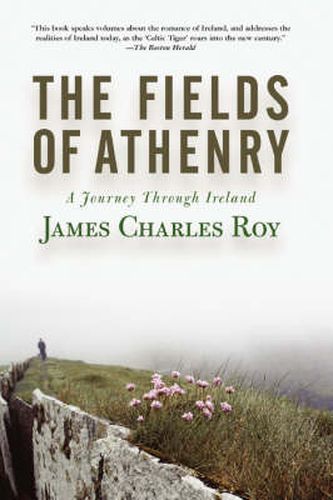Readings Newsletter
Become a Readings Member to make your shopping experience even easier.
Sign in or sign up for free!
You’re not far away from qualifying for FREE standard shipping within Australia
You’ve qualified for FREE standard shipping within Australia
The cart is loading…






In The Fields of Athenry , James Charles Roy leads us through the Irish past and present by way of his own personal struggles and misadventures in renovating Moyode Castle, an old tower house that he purchased more than thirty years ago. While he pieces together its four-hundred-year-old past, the castle becomes a powerful symbol for Roy - it is battered by waves of history, yet timeless and resilient. Roy’s personal struggles with the land and its people open for him a wide-ranging historical conversation on Ireland today and our sense of history more broadly. How do we reconcile the historical nostalgia attached to Ireland with the boom times that the Celtic Tiger enjoys today? With this question in mind, Roy searches for the answer of what attracts us - or, perhaps more aptly, him - to the rubble of a castle from Irish days long past.
$9.00 standard shipping within Australia
FREE standard shipping within Australia for orders over $100.00
Express & International shipping calculated at checkout
Stock availability can be subject to change without notice. We recommend calling the shop or contacting our online team to check availability of low stock items. Please see our Shopping Online page for more details.
In The Fields of Athenry , James Charles Roy leads us through the Irish past and present by way of his own personal struggles and misadventures in renovating Moyode Castle, an old tower house that he purchased more than thirty years ago. While he pieces together its four-hundred-year-old past, the castle becomes a powerful symbol for Roy - it is battered by waves of history, yet timeless and resilient. Roy’s personal struggles with the land and its people open for him a wide-ranging historical conversation on Ireland today and our sense of history more broadly. How do we reconcile the historical nostalgia attached to Ireland with the boom times that the Celtic Tiger enjoys today? With this question in mind, Roy searches for the answer of what attracts us - or, perhaps more aptly, him - to the rubble of a castle from Irish days long past.